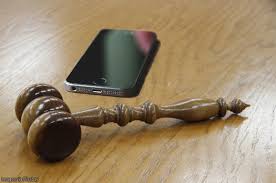Congratulations on winning a judgment against your Defendant! Even in the glow of your victory, take note that winning a judgment doesn’t automatically mean you get a check. Getting the judgment, no matter how much work you or your attorney put into getting it, can be the first step to getting paid, or what is referred to as a “satisfaction” of the judgment.
If your Defendant pays immediately, great! The judgment is then “satisfied”.
But what happens when the Defendant doesn’t pay the judgment?
Note, even though there is expense and time involved, you can pursue satisfaction through judgment collection. The Court may or may not grant you a judgment increase to cover your collection costs. Thus you must decide how far you are willing to go to collect your judgment. It is your decision to decide if the expense and time of pursuing your judgment is worth the effort to collect. For many plaintiffs – it is!
An initial step towards satisfaction is garnishing the Judgment Debtor’s wages. In Tennessee, employers even those of 1099 independent contractors, are required to garnish the Debtor’s wages or be responsible for the payment of the debt. A percentage of the Debtor’s wages is collected until the judgment debt is paid in full. It takes a while, but eventually, you will be paid in full – so long as they remain employed with that employer.
What if your Judgment Debtor is self-employed? You can still collect on your judgment but it will likely take more time and expense. Your Tennessee judgment will last ten years and can be revived to last even longer – so you’ve got time if you have the patience.
First, you need to do some reconnaissance and maybe post-judgment hearings to determine what property your Judgment Debtor owns. Maybe he owns real property (land) and personal property like cars, A.T.V.s, motorcycles, a truck, heavy equipment, or other property.
Second, if the Judgment Debtor still refuses to pay, the County Sheriff can seize the personal property and sell it at auction to satisfy the judgment. If the proceeds are not enough to pay the judgment, a lien can be placed on the real property. That lien (the judgment) must be satisfied first or at the time of closing before the property can be sold. Ultimately, this means you finally get your money!
You may have a Judgment Debtor who is “judgment proof”. This means essentially they do not have an employer from whom you can seek garnishment and don’t have any real or personal property of value. If so, this may mean your judgment may be difficult to collect and will require a lot of patience. Nothing but time and pressure make a diamond – and your wait can pay off – especially since Tennessee’s judgment interest rate keeps rising. That means your judgment amount will keep growing. And, your judgment is good for 10 years (you can renew the judgment before it expires).
So, while getting your judgment is the first step towards adding to your bank account and the process can take time, ultimately you can receive satisfaction in more ways than one!



 Last month, an Ohio Court awarded Jennifer Kershaw $1,580,000 in compensatory damages and $20 million for punitive damages. The Defendant was her former spouse, Jerry Bailey. The lawsuit was over physical injuries she received from being punched in the face repeatedly by Mr. Bailey while the two were still married. Mr. Bailey was fined $100, sentenced to two years probation, and served a mere two days in jail after a conviction of misdemeanor domestic violence for his then wife’s broken facial bones. Two days in jail. $100. Probation. Case over? Not yet.
Last month, an Ohio Court awarded Jennifer Kershaw $1,580,000 in compensatory damages and $20 million for punitive damages. The Defendant was her former spouse, Jerry Bailey. The lawsuit was over physical injuries she received from being punched in the face repeatedly by Mr. Bailey while the two were still married. Mr. Bailey was fined $100, sentenced to two years probation, and served a mere two days in jail after a conviction of misdemeanor domestic violence for his then wife’s broken facial bones. Two days in jail. $100. Probation. Case over? Not yet. People are not always…. uh, forth coming about past marriages and especially the divorce(s). If you have assets or children to protect, a little caution can go a long way towards protecting both your finances and your heart.
People are not always…. uh, forth coming about past marriages and especially the divorce(s). If you have assets or children to protect, a little caution can go a long way towards protecting both your finances and your heart. convenient spot. Our cell phones offer an in depth snapshot (snapchat?) of our daily real and virtual lives. Any damage or malfunction to our precious device automatically sends us rushing to the Apple store or madly googling how to correct the issue. We protect our phones with special and costly cases and add super secret squirrel access codes to keep our data safe. And in 2014, the Supreme Court also added another layer of protection by prohibiting warrantless searches of your password-protected cell phone.
convenient spot. Our cell phones offer an in depth snapshot (snapchat?) of our daily real and virtual lives. Any damage or malfunction to our precious device automatically sends us rushing to the Apple store or madly googling how to correct the issue. We protect our phones with special and costly cases and add super secret squirrel access codes to keep our data safe. And in 2014, the Supreme Court also added another layer of protection by prohibiting warrantless searches of your password-protected cell phone. Can you take your cell phone into court? Maybe. Maybe not. In Wilson County, Tennessee? Definitely not. Upon approach, you will see multiple signs announcing cell phones or other recording devices were banned from the building.
Can you take your cell phone into court? Maybe. Maybe not. In Wilson County, Tennessee? Definitely not. Upon approach, you will see multiple signs announcing cell phones or other recording devices were banned from the building.
 You thought you put your cell phone on silent – but then it happens. RING! RING! In a movie theater, this error would garner you a lot of dirty looks, at least. But, in court, a ringing cell phone could mean contempt of court with “state-sponsored accommodations” for the evening or a monetary fine.
You thought you put your cell phone on silent – but then it happens. RING! RING! In a movie theater, this error would garner you a lot of dirty looks, at least. But, in court, a ringing cell phone could mean contempt of court with “state-sponsored accommodations” for the evening or a monetary fine.